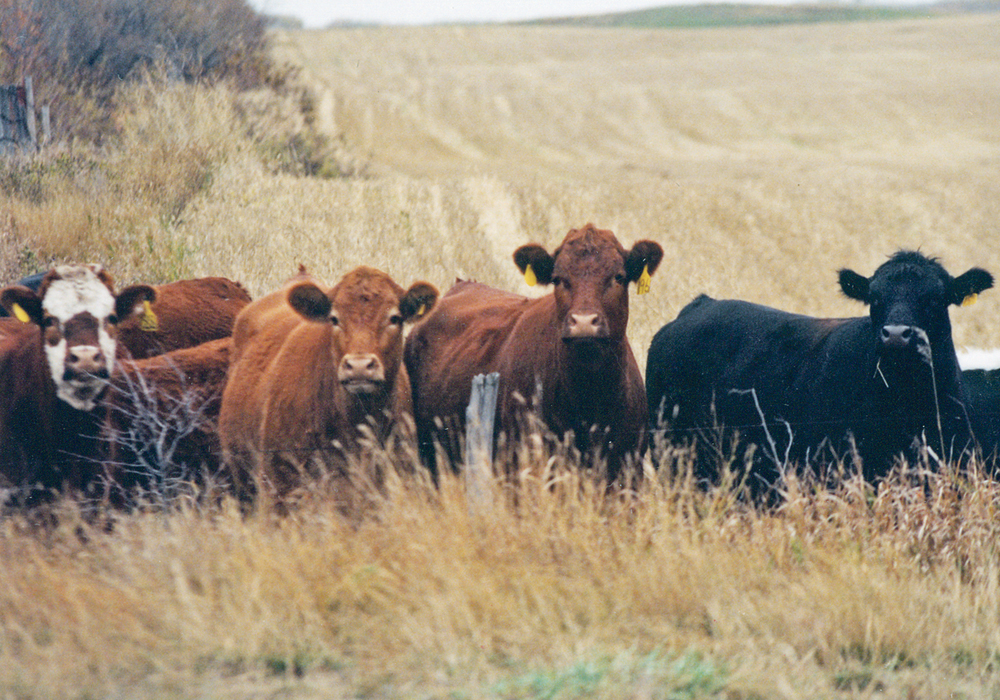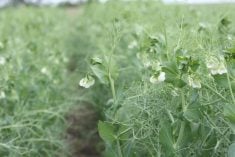Environmentally conscious consumers are not the only ones concerned about sustainable food production.
Many of the world’s largest food manufacturers have also adopted sustainability strategies that are aimed at preserving the environment and protecting their own bottom lines.
At Cargill, a global food supply company that employs 160,000 people in 70 countries, environmental sustainability and greenhouse gas emission reductions are key considerations that are helping to shape the company’s internal policies.
Earlier this month, Cargill announced plans to reduce greenhouse gas emissions in its global supply chains by 30 percent per tonne of product by 2030.
Read Also

Soybean market still figuring out implications of China-U.S. pact
Soybean futures had a muted reaction to the U.S. trade deal with China as the market tries to figure out the nuances of the deal.
In a Dec. 3 news release, the company said greenhouse gas reduction goals align with the priorities of many of Cargill’s customers, who are similarly concerned about climate change and environmental protection.
“With a global footprint and presence in major food and ag supply chains around the globe, Cargill is committed to protecting the Earth’s vital natural resources and reducing its environmental impact,” the company said.
“Without bold and decisive actions by all involved in the production of food, climate change will destabilize the food system,” added David MacLennan, Cargill’s chair and chief executive officer.
“We are determined to innovate, scale and implement solutions together with producers, our customers and governments worldwide. Agriculture is how we will mitigate climate change, regenerate our soils and improve water use while nourishing the world in a more sustainable way.”
In recent years, Cargill has emerged as a leader in the sustainable food production movement.
As part of its commitment to sustainable production, the company is devising a number of internal initiatives or “targeted supply chain interventions.”
These initiatives are intended to benefit customers as well as primary producers and the environment, the company has said.
In beef production, Cargill is establishing programs in the areas of grazing management, feed production and food waste reduction.
The company’s BeefUp Sustainability initiative aims to achieve a 30 percent reduction in greenhouse gas emissions over the next 10 years for every pound of beef that’s produced.
Cargill said it will work hand in hand with farmers, ranchers and innovators across the beef supply chain to accelerate the adoption of environmentally friendly practices.
Meanwhile, the company’s Manure Innovation Challenge will seek solutions that capture the value from manure-based nutrients, fibre and energy while improving on-farm profitability.
Cargill has also launched initiatives designed to enhance soil health, reduce carbon dioxide emissions in global shipping activities and protect global forest resources by encouraging more sustainable farming practices.
Cargill is not alone.
Canada’s largest food companies are routinely establishing programs that appeal to socially and environmentally conscious consumers, said Cher Mereweather, president and chief executive officer of Provision Coalition.
Provision Coalition is an Ontario-based company that helps food manufacturers and processors improve their profitability by improving their practices.
“We are really about helping processors and manufacturers make food sustainably,” said Mereweather, who spoke at a Public Trust Forum in Saskatoon earlier this year
According to Provision Coalition, Canadian food and beverage manufacturing businesses are eager to make changes that will benefit the environment, and by extension, improve their bottom lines.
Jeffrey Fitzpatrick-Stilwell, senior manager for sustainability and agriculture lead with McDonald’s Canada, said sustainability is a top priority for his company.
Speaking at the Public Trust Forum, Fitzpatrick-Stilwell said McDonald’s has a unique responsibility, given its size and market reach, to promote initiatives that promote sustainability and environmental stewardship.
“When we talk about sustainability, we’re really talking about taking that idea of corporate responsibility and looking at it as an opportunity,” Fitzpatrick-Stilwell said at the conference.
“As a responsible company, we want to make sure we’re having a positive impact,” he added in a subsequent interview.
“We want to be doing our part for the planet.”
In recent years, McDonald’s has heightened efforts to ensure that the food it sells is responsibly sourced and sustainably produced.
In today’s world of instantaneous communications and global connectivity through social media, food consumers are more likely than ever to voice their opinions and concerns about the way food is produced.
More specifically, they are demanding proof that the products they buy are produced and sourced sustainably and ethically.
With those values in mind, MacDonald’s is committed to sourcing food products from supply chain partners that have also identified sustainability as a top priority.
“From the suppliers side, one of the things that we’re really proud of is that we work with world class suppliers, and we wouldn’t work with any suppliers that don’t have their own commitment to sustainability,” Fitzpatrick-Stilwell said.
“A lot of our ability to leverage change comes from working with these world class suppliers — whether its McCain for potatoes, Cargill for beef, and so on.”
McDonald’s verified sustainable beef pilot project is a clear example of how different stakeholders in the beef supply chain can work together toward a common goal.
The pilot program, launched in early 2014, aimed to prove that McDonald’s could successfully source verified sustainable beef in one segment of its global market.
The company chose Canada as its proving ground, based largely on the fact the Canadian beef industry had already taken a leadership position and launched several key initiatives that aligned with McDonald’s sustainability objectives.
By June of 2016, after working collaboratively with the Canadian beef industry, Cargill and other supply chain partners, McDonald’s announced that its Canadian pilot project had successfully reached its objectives and that McDonald’s Canada was able to source 100 percent of its beef from verified sustainable Canadian suppliers.
Based on that success, McDonald’s Canada then collaborated with the Canadian Roundtable for Sustainable Beef (CRSB), which was promoting and developing a similar program.
“Our sustainable beef sourcing (in Canada) is now done through the CRSB framework,” Fitzpatrick-Stilwell said.
“McDonald’s Canada was really excited and proud to be the first organization in Canada to be able to source certified sustainable beef through the CRSB framework and we were also the first organization … to be able to use the CRSB certification mark on our Angus packaging.”
Details of McDonald’s Canada’s verified sustainable beef initiatives can be viewed at bit.ly/2PKLfRq.
Fitzpatrick-Stilwell said the Canadian pilot program and McDonald’s Canada’s subsequent participation in the CRSB’s verified sustainable beef program has been great for business and allowed the company to project a positive corporate image to consumers across Canada.
“It gives us a tangible proof point to communicate to our guests the amazing sustainability work that producers and suppliers in Canada … are doing and will continue to do,” he said.
“It’s a critical pride point for McDonald’s Canada that we source 100 percent Canadian beef, and our guests find that a really important aspect of why they come to (our restaurants)….
“Being able to give them an additional reason to feel good about (visiting McDonald’s) … is really important to us as a company and it’s really important to our guests.”
















